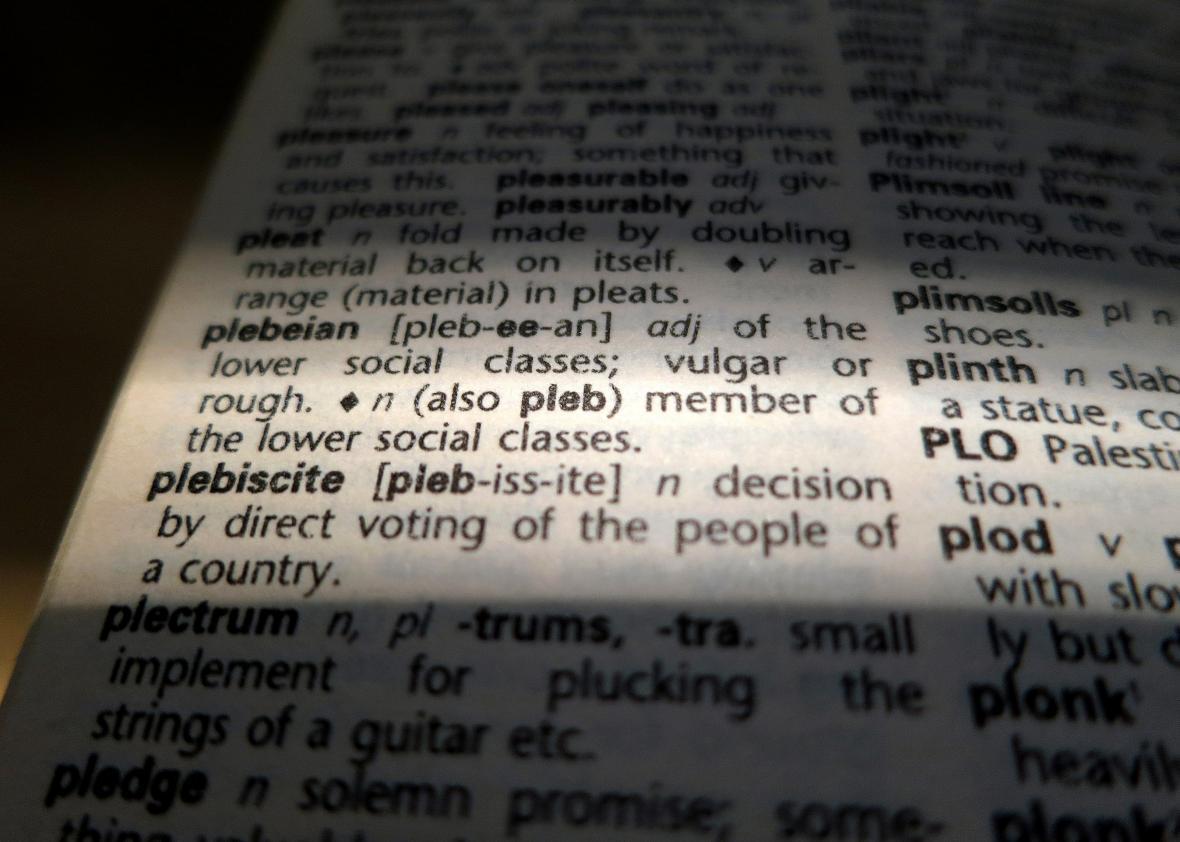Love the internet or see it as the devil’s playground, there’s one thing for which it seems the dream home: reference. Dictionaries, encyclopedias, all those thick, square tomes of yesteryear, in my case the three volumes that made up the 2010 print edition of Green’s Dictionary of Slang are surely over. The mighty OED, halfway through its revision, would currently need 40 volumes. It’s not going to happen, any more than I or any publisher would consider an expanded print version of my own effort. The monster dictionaries might be good for propping up a misaligned table, but for information? We expect better and thanks to the web those of us who create reference databases can offer it.
When I signed on to write my dictionary in 1998, hard on the heels of its single-volume predecessor, I carefully inserted a clause in the contract: There will be an e-book. Back then no one quite knew what the term meant. For me it was everything that print couldn’t be: It was to be a website on which would be uploaded a facsimile not of the static hardback, but of my dynamic, constantly evolving research database. If I could ask for every word James Joyce uses for sex, Dickens for drunkenness, or Irvine Welsh for heroin, then so should everyone else.* If I needed to see the first recorded use of a given term, then it should be openly available. All 1,740 words for sexual intercourse: no sweat. That was the plan.
As we know, tell God your plans and the next thing is you’re watching them collapse. A dozen years and four publishers later, such was the crazy evolution of an industry that chose not so much to embrace the internet but to run shrieking in the opposite direction, I was informed: no e-book. Of whatever sort. And certainly no expensive website. Given that the alternative was no book of any sort, I had to give in. Like the Marx brothers gag in Night at the Opera, the contract was torn to pieces and while our meeting was around Christmas, there was definitely no Sanity Clause. Still, the book came out, was kindly reviewed, won a prize and even had a small reprint.
The e-book, which I now rechristened a website, did not disappear. I was determined. I kept working—what else could I do, my work and my life had long since folded into one another and I had no thoughts of suicide, professional or otherwise. And the web was such a glorious source of new material. Whether in neologisms thrown up by social media, or the ever-older first recorded uses that turned up in the cornucopia of newspaper databases, online lyrics sites, scripts, and so much more, how could I even think of stopping?
The problem was not the what, but the how. Three possibilities emerged. A new publisher, an institution, probably academic, a business backer. None of them worked. The publishers were doing e-books, but only of proven hits; institutions, certainly in the U.K., declared themselves too poor, and businesses, inevitably, were only up for the bottom line. What I needed was an old school patron, but Dr. Johnson I’m not.
In the end, and quite fittingly, the breakthrough came online. A tweet, right out of the blue, and with it a young programmer who offered to do the job. How much? I asked. Nothing, he replied. He admired the work and was interested in the possibilities of programming a dictionary. I pondered gift-horses and mouths, and sent him the data. It took more than two far from easy years, but we got there. The product is what has just been launched.
What next? We shall see. The dictionary exists in two forms: If you need no more than the word, its etymology and a definition, then worry no more, it’s free. What you get is effectively one of my single-volume dictionaries. But if you want the meat, the half-million citations, i.e. examples of actual usage offered at one per decade for as far back as I can find them for a given word or phrase, then there has to be a charge. We have tried to keep it reasonable.
Seeing the dictionary online, and watching users appear, make their searches and hopefully find what they wanted, merely underlines what I already knew: The internet and reference are made for each other. Research continues and every three months I shall be offering new material, whether brand-new terms, or earlier, as yet unknown examples of older ones. For subscribers we aim to offer a range of new tools for getting even more from the data. The data is so far mainstream English-language slang, but the growing importance of world English means that a place must be found for the attendant slangs too. It’s early days, but a teasing deity notwithstanding, what’s not to dream.
*Correction, Oct. 13, 2016: This post originally misidentified Irvine Welsh as Irving Welsh.
